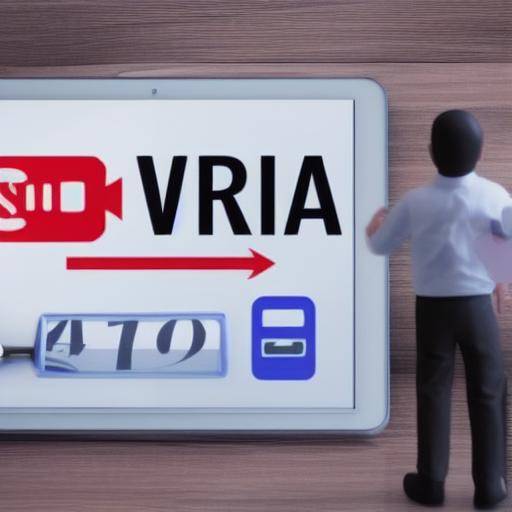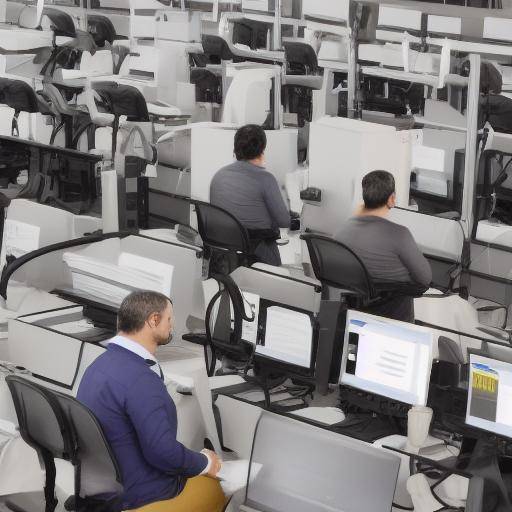
Self-discipline is an invaluable quality that can significantly impact a person's financial stability. Developing healthy financial habits requires a level of personal control and commitment, and self-discipline plays a crucial role in this process. In this article, we will explore in depth the importance of self-discipline in personal financial management, how to effectively develop it and its impact on maintaining sound financial habits. We will also address frequent questions and offer practical advice to improve self-discipline and promote long-term financial stability.
Introduction
Self-discipline is the ability to control our impulses, emotions and behaviors in pursuit of long-term goals. In the context of financial management, it implies the ability to resist the temptation of unnecessary expenses, maintain a sound budget and make prudent financial decisions. Lack of self-discipline can lead to harmful financial habits, such as overexpenditure, lack of savings and debt accumulation.
In this article, we will explore how to develop and strengthen self-discipline to maintain healthy financial habits. From its historical foundations to its impact on financial stability, we will analyze in detail how self-discipline can be a determining factor in the effective management of personal finances.
History and Background
To understand the contemporary importance of self-discipline in financial management, it is essential to explore its origins and evolution over time. From antiquity to the modern era, self-discipline has been recognized as a fundamental pillar for success in various aspects of life, including the financial sphere.
The history of self-discipline in the financial context dates back to ancient civilizations, where prudence and moderation in spending were highly appreciated values. From discipline in resource management to the first forms of accounting, self-discipline has been a driving force in responsible heritage management.
Deep analysis
Self-discipline in the financial sphere entails a number of significant benefits. By developing the ability to resist instant temptations for the benefit of long-term financial goals, people can cultivate healthy financial habits that promote stability and personal economic growth. However, this process is not without challenges, and lack of self-discipline can result in negative financial consequences.
Self-discipline also plays a crucial role in making informed financial decisions and in managing the personal budget effectively. By adopting conscious spending habits, systematic savings and responsible investment, people can ensure a safer and more prosperous financial future.
Comprehensive review
To effectively implement self-discipline in the financial sphere, it is essential to address this quality from a practical perspective. Through case studies, comparative analysis and best practices identified by financial experts, we can understand how self-discipline translates into healthy financial habits and achieving financial stability.
Self-discipline and its implications for financial management should also be considered from different approaches. By comparing varied methods and approaches, we can identify the most effective strategies for the development and maintenance of healthy financial habits, considering the particularities of each individual and their economic context.
To get a broader vision, we will also examine the perspectives of personal finance experts and explore future trends in the relationship between self-discipline, financial habits and economic stability.
Comparative analysis
By comparing self-discipline with financial habits, we identify how these two dimensions intertwine in the process of achieving financial stability. While self-discipline provides the basis for sound financial decision-making and resistance to impulsive cost temptations, financial habits represent the consistent practical actions and behaviors derived from self-discipline. In understanding the similarities, differences and complementarities between the two facets, individuals can develop a holistic approach to effectively manage their financial resources.
Practical Tips and Accessible Advice
Developing self-discipline and healthy financial habits can be a challenge, but there are practical strategies that can facilitate this process. By providing clear and actionable advice, individuals can acquire concrete tools to strengthen their self-discipline and improve their financial well-being. These practical councils will range from the development of an effective budget to the resistance to the temptations of unnecessary expenses, providing a step-by-step approach to improving personal financial management.
Ideas and Industry Reviews
The financial industry offers an invaluable perspective on self-discipline and its impact on financial habits. Through interviews with personal finance experts, analysis of trends and future projections, we will gain a deeper understanding of how self-discipline is shaping the contemporary financial landscape and implications for the future. The views and expertise of industry experts will provide a comprehensive and up-to-date view on the importance of self-discipline in personal financial management.
Case Studies and Real Life Applications
Detailed case studies and practical applications represent concrete examples of how self-discipline and healthy financial habits can positively impact people's financial stability. By exploring real cases of individuals who have successfully implemented self-discipline in their financial decisions and daily habits, we get a practical and tangible insight into how these principles can transform people's economic situation.
Future Trends and Predictions
The financial context is constantly evolving, and it is crucial to anticipate trends and developments that could influence personal financial management in the future. In addressing emerging trends related to self-discipline, financial habits and economic stability, we can provide insightful insight into the challenges and opportunities that individuals could face in the long-term financial arena. Predictions based on current data and expertise will provide a valuable guide to prepare for the changing financial landscape.
Conclusions and FAQs
Conclusions
In short, self-discipline plays a key role in establishing healthy financial habits, which in turn contributes significantly to personal financial stability. From its historical evolution to its practical application in everyday life, self-discipline remains an essential pillar in the effective management of financial resources. By developing this quality and fostering sound financial habits, individuals can pave the way for a more stable and prosperous financial situation.
Frequently asked questions
1. How can I develop self-discipline in my daily financial decisions?
Answer: Financial self-discipline can be strengthened through the development of a detailed budget, the identification of clear financial targets and resistance to the temptations of impulsive expenses. Proactivity and constancy are fundamental to forming healthy financial habits.
2. What is the relationship between self-discipline and long-term financial stability?
Answer: Self-discipline lays the foundation for responsible financial habits, which in turn promotes long-term financial stability by fostering savings, conscious investment and strategic financial planning.
3. What common challenges do people face in trying to develop self-discipline in their personal finances?
Answer: Common Challenges include the temptation of unnecessary expenses, the lack of control over emotions by making financial decisions and the difficulty in maintaining long-term discipline. Identifying and addressing these challenges is critical to strengthening self-discipline.
4. What role do financial habits play in managing self-discipline?
Answer: Financial habits are concrete manifestations of self-discipline in daily life. These habits, such as regular savings, planned investment and spending moderation, reflect a person's degree of self-discipline in his approach to finance.
5. What are some effective strategies to resist the temptation of impulsive expenses and strengthen financial self-discipline?
Answer: Establishing clear limits, adopting automatic savings strategies, practising reflection before making meaningful purchases and seeking support from family or financial professionals are some effective strategies to strengthen self-discipline in financial decisions.
6. Why is it important to maintain self-discipline even in moments of financial bonanza?
Answer: Continuous self-discipline is vital to preserve financial stability, even in times of bonanza. It ensures that financial resources are allocated in a prudent and sustainable manner, preparing individuals for future eventualities and opportunities.
In conclusion, self-discipline is the cornerstone of healthy financial habits leading to long-term economic stability. By cultivating it, people can transform their approach to personal finances, ensuring a solid and sustainable financial future. With the implementation of practical strategies and the knowledge of experts, the path to financial self-discipline becomes more attainable for all, opening the doors to greater security and economic well-being.


















































